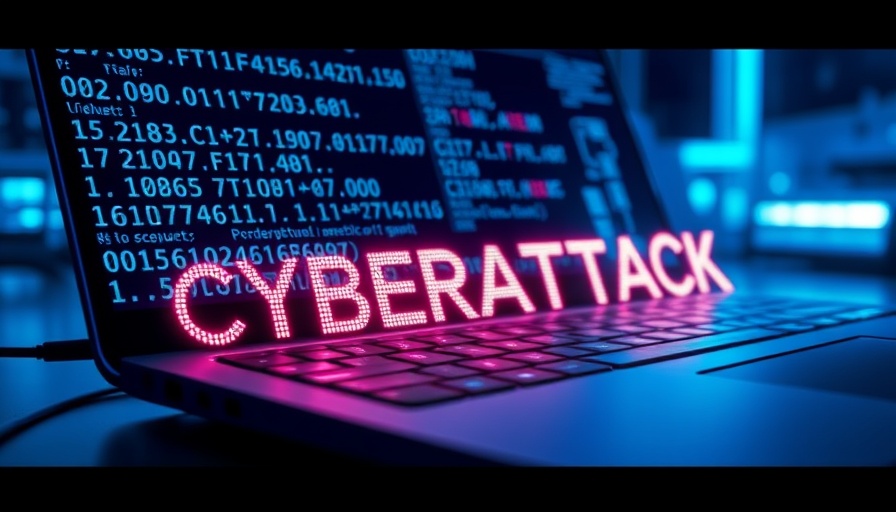
Understanding the Implications of Kettering Health's Cyberattack
Kettering Health recently faced a systemwide outage following a cyberattack, causing significant disruptions, including the cancellation of elective procedures. This incident highlights the vulnerability of healthcare organizations to cyber threats and the urgent need for fortified defense mechanisms.
The Context of Healthcare Cybersecurity Risks
Cybersecurity breaches in the healthcare sector are not new, with numerous organizations falling victim to similar attacks just this year. For instance, Frederick Health and Palomar Health Medical Group both experienced ransomware incidents that rendered their systems inoperative, demonstrating a troubling trend that raises alarms.
The Role of Ransomware in Cyberattacks
Preliminary reports suggest that this cyberattack on Kettering Health may have involved the notorious Interlock ransomware gang, which has made headlines for targeting healthcare institutions. Such gangs often encrypt critical data, demanding ransom payments to restore access, thereby posing not just operational risks but potentially compromising patient confidentiality.
Protecting Patient Data: A Priority for Healthcare Facilities
With sensitive patient information at risk, it becomes paramount for healthcare facilities to implement robust cybersecurity strategies. The Center for Internet Security outlines essential steps to mitigate ransomware threats, emphasizing the need for regularly updated policies, data backups, network hardening, and staff training to recognize phishing attempts.
Steps to Create a Cyber-Resilient Healthcare Environment
To bolster defenses against ransomware, here are four crucial steps for healthcare facility managers:
- Develop Comprehensive Policies: Establish clear protocols to follow during a cyber incident so all staff understand their roles and responsibilities.
- Regular Data Backups: Protect vital data by backing it up regularly and ensuring that backup files are securely stored offline to prevent attacks.
- Network Hardening: Assess and strengthen the security of all access points within the healthcare network by conducting thorough audits.
- Staff Education: Regular training for staff on identifying and avoiding potential cyber threats is critical to maintaining a secure environment.
Future Outlook for Healthcare Cybersecurity
The increasing frequency of cyberattacks in the healthcare sector necessitates continual vigilance and innovation. A potential shift towards adopting advanced technologies such as AI for monitoring network activities could emerge as a strong defense mechanism against future cyber threats. Moreover, governmental regulations or incentives may increase as the industry seeks to ensure patient safety and data integrity.
Conclusion: The Time for Action is Now
As Kettering Health's recent outage illustrates, the threat of cyberattacks is an ever-present danger in the healthcare sector. Healthcare organizations must proactively work to implement and improve their cybersecurity measures, educate staff, and safeguard sensitive patient data. The commitment to enhancing cybersecurity not only protects the department but also fosters trust and safety among patients.
 Add Row
Add Row  Add
Add 




 Add Row
Add Row  Add
Add 

Write A Comment